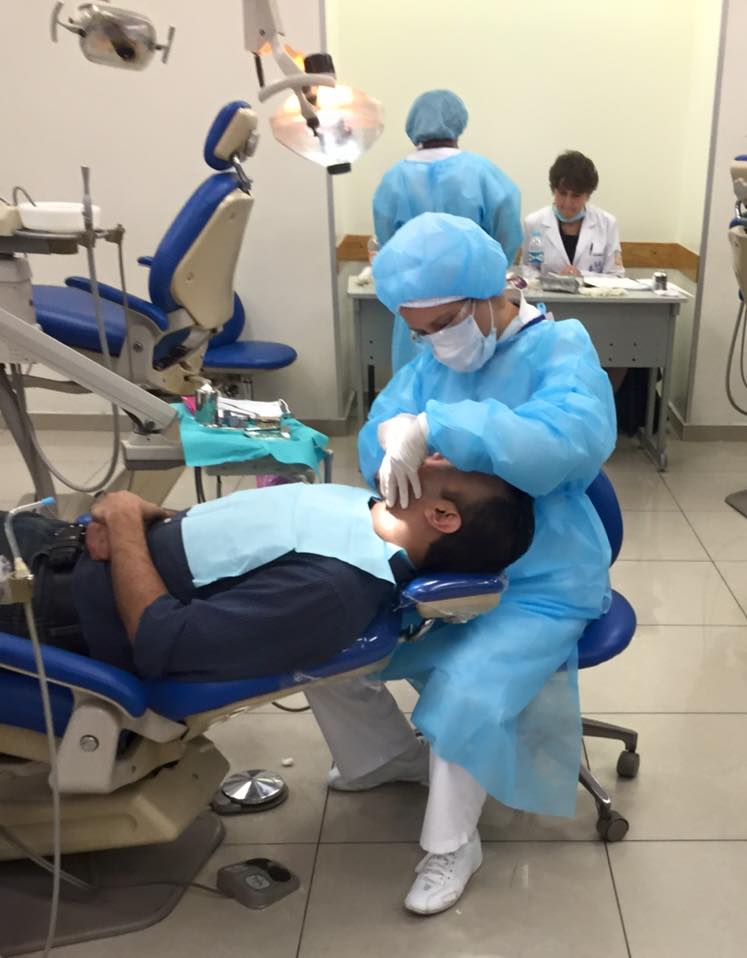It is very common to talk about experiences but how do we do that?

n.a. n.d. People. [photo]. Taken from http://bit.ly/2lqYerH
Well, before you are in this situation you should know that the frequency adverbs ever and never come in very handy for this situation.
Please be aware that, at this point, it is very important that you already know verbs in simple form, past and past participle, and that you are familiar with the present perfect structure and the simple past structure in English.
Use the grammatical structure of the simple past, present perfect and the adverbs of frequency never and ever to express previous experiences of life.
Present perfect
If you remember, present perfect is used to talk about actions in the past that are somehow connected to the present; there is not a precise time expression.
Present perfect uses the following structure:



n.a. n.d. Paisaje. [photo]. Taken from https://pixabay.com/photo-664783/



n.a. n.d. TV.. [photo]. Taken from https://pixabay.com/photo-391555/



Hudson P. (2015) Wheel of fortune. [photo]. Taken from https://flic.kr/p/yKr4tc

The most important difference between present perfect and simple past is:


Simple past
Let’s remember how to form simple past:
Frequency adverbs ever and never
Now you have reviewed the present perfect and the simple past, let’s see how to use the frequency adverbs ever and never.
The Frequency adverbs are words that express –of course- the frequency of an action. As it is indicated by the name, they are ADVERBS that is, they are used BEFORE the main verb (ad-verbs= before verbs).
As you can see the adverb EVER does not actually indicate a frequency, it is more like: "in your whole life”. That’s why it is very common in questions with the present perfect form to ask about experiences.
For example:

s.a., s.f., Fantasma. Taken from https://pixabay.com/photo-35852/
To answer this question, you can do one of these things:
Instruction: Click on each of the following boxes to see the correspondent information.
Creating questions.
According to what you have learned previously, drag each word to its corresponding place to create a question in present perfect. You have to form a grammatically correct question. You can try this twice and at the end you will get to know your results.
Example:
? Have a bone broken you ever
Have you ever broken a bone ?
Activity 1.
In the following reading you will find some expressions using ever and never and some experiences about a wanderer.

n.a. n.d. Mendigo. [photo]. Taken from https://pixabay.com/photo-1016678/ |
Have you ever wondered about that homeless person living in your neighborhood? One day he or she just showed up and stays there, who knows for how long. Have you ever wondered about his or her past? Have you ever thought whether he or she has a family or a profession? Do you just assume that person has always been a wanderer? Let me tell you about my experience. I am Frederic. A 38-year-old wanderer, call me vagabond if you prefer that word. Of course, I haven’t always been a vagabond. I was born in a traditional family. It was my mom and dad, my older brother and I. My life was tough as a child but I was happy… you know I had exactly what I needed: a family, a house and food. My parents taught me had to work hard and I did, they didn’t push me to get a degree but I did it anyways. I became an administrator. I started making good money. Maybe more than you think. You may be wondering what happened then. Well… I learned things had to be made by myself, that no one would be there with a magic wand to give me anything. I was tough and I thought I was alone too. How wrong I was. I have never been loyal to anybody. I took everything I wanted from people who loved me and I gave nothing back. Now I know this. I decided once I wanted a family: I lied to a wonderful woman and after trying for one year she finally got pregnant with my son. I knew I would have everything then so, I stopped helping her. I left her alone with her pregnancy; I never helped her with doctors or hospitals. I was too busy dating other girls I didn’t care about. My son was born… It was a boy! I have always wanted to have a baby boy and now it was real. That didn’t make me react though, you know, I was a womanizer! How could I feed or clean or sleep a newborn? Noo, not me! I thought that was a woman’s work. I slept during night and went to party during the day. My wife would have to take care of the baby. Time went by and my son grew up, my wife of course left me, she and my son learned how to be so happy without me. They had everything: my son had the best mother ever! My wife had the happiest son too. I just had my empty business and my empty life. I have always been a “macho” so that situation didn’t stop me from being dating one girl after another. I tried to settle down with a girl who was really pretty and young, but she had a mean heart. I actually missed my wife. I tried to get back with my ex-wife (of course she shut the door on my nose), my current girlfriend found out about this and she got me in a trouble that made me lose my job, my business and my clients. I lost the apartment and moved with some friends. I was too sad, felt so much regret. I didn’t live long with my friends. I put all my things in my car and left. I needed money and started selling everything little by little. I didn’t want to see my family because I was too embarrassed and I wrote a letter to my ex-wife asking her to tell my son I had left the country. One day I saw myself there… sleeping on a bench in a park. Getting temporary jobs that help me get money for food, moving from one place to another. I have met some others vagabonds in the way and of course we all have different stories. There are wanderers who love traveling and have never been caught into the system: They don’t pay taxes, they don’t pay rent, they live wherever they like and they are so happy. One thing we all have in common is… people like you do not understand us. We are there but we do not exist. I am sure you never think much about us. My dream is to let you know vagabonds like me, were people like you once. My dream is to let you know we all make mistakes and mistakes are sometimes too expensive. From the moment, I Knew I had made a horrible mistake I have never slept without wishing I had known how to be a father. I wish I knew how to be a good husband. Things can get really bad. Like a snowball they just grow bigger and you are there inside, trapped in something you could’ve avoided from the very beginning. My dream is then, to let you know that, in my case, mistakes are expensive; you know exactly when you make them and you do nothing to avoid them. That is the worst mistake ever! Be a wanderer by choice! That’s my best piece of advice. |
After reading the article, identify if the statements are true or false by clicking on the appropriate option (T or F). You have two attempts to answer every item. You can know your score at the end of the exercise.
Activity 2.
How important are our experiences to get a good job? Have you ever had a job interview where your personal experiences mattered?
In the following activity you will listen to a job interview. After you listen, identify if the statements are true or false by choosing the appropriate option (T for True and F for False). You will have two chances to complete this exercise and you will get to know your score at the end of the exercise.
Job interview
Activity 3.
This activity is divided in two parts.
In the first part, you will have to look at a picture and write your comments according to your own experience mentioning if you have done what the picture suggests or if you have never done it. You will have to write I have …before or I have never… with the correct form of the verb in past participle. You can use contractions I´ve… too.
At least one of your answers will have to be affirmative. Punctuation and capitalization will be evaluated.
For example:
Have an oral surgery.

Surgery.
I have never had an oral surgery/ I´ve never had an oral surgery.
OR I have had an oral surgery before/I´ve had an oral surgery before.
Activity 4.
Second Part:
These are the pictures of the last activity:






Choose one of these experiences that you have done or mentioned and write a short paragraph (from 40 to 50 words) answering:
You will have to use simple past to express your ideas.
For example:
It was 2 years ago. I went with my friends to the Dentistry School because I had a sharp pain in one of my tooth and the dentists said I needed an oral surgery to take my tooth out. I felt really nervous and the surgery was painful but after surgery I was much better.
Please, before you send your paragraph, make sure it has the characteristics contained in the Rubric.
To post your contribution, click on the Add assignment button. A word processor will appear and you can type your activity or answer. Once you finished, save your work by clicking on the Save changes button.
Activity 5.
Job interview
In this activity you will give reasons to hire or not Mr. Yussell.
You will have to use Mr. Yussell has … before/Mr. Yussell has never… and the Simple Past structure to express most of your ideas.
First try to organize the ideas you will be saying, then record yourself giving click in the button below. You have to explain your ideas for two minutes and no more than three.
Please, before you send your description, make sure it has the characteristics contained in the Rubric..
Exercise 1.
There are many contexts in real life where you can use Present Perfect with ever and never. Now it is time for you to practice and see some examples of these common contexts. You may need them soon!
According to what you have learned, choose the correct form of the Present Perfect structure. You can know your score at the end of the exercise.
Example:
Have you ever_____________ a fine?
a) got
b) get
c) have got
Exercise 2.
Drag the different questions from the left column to the appropriate space in the right column. You have two attempts to answer every item. You can know your score at the end of the exercise.
Aarts, Bas. (2011). Oxford Modern English Grammmar. New York. Oxford University Press.
Chamot, Anna Uhl, et al. (2008).The learning strategies. New York. Longman.
Eales, F., y Oakes, S. Speak Out Elementary. (2012). Pearson Education.
Ministerio de Educación, Cultura y Deporte., (2002). Marco Común Europeo de Referencia para las lenguas: aprendizaje, enseñanza, evaluación. Recuperado el [día, mes, año] en http://cvc.cervantes.es/ensenanza/biblioteca_ele/marco/cvc_mer.pdf
Oxeden, C., Latham-Koenig, C. y Seligson, P. (2008). American English File 1. Oxford University Press.
Saslow, J., Ascher, A. y Morsberger, R. Top Notch 1. (2011). Pearson Longman.
Soarz, J. y Soarz, L. American Headway 1. (2001). Oxford Univerity Press.
Swan, M. (2010).Good grammar book. New York. Oxford University Press.
Littlejohn, A. & Hicks, D. (1999).Cambridge English Worldwide. Cambridge: Cambridge University Press.
C. Mahoney. (2014).Comparative and Superlative Adjectives. CreateSpace Independent Publishing Platform.